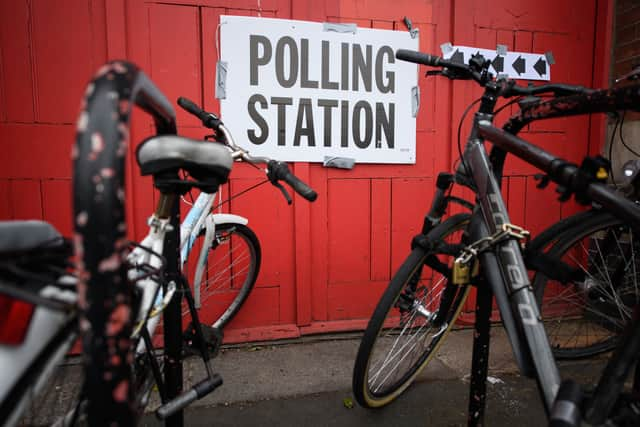When is the next UK General Election? Date of scheduled vote - can Liz Truss call an election earlier?
and live on Freeview channel 276
Liz Truss is facing calls to hold a general election amid the political turmoil of her first weeks in power.
The Prime Minister has been criticised for constant U-turns in policy, the sacking of her Chancellor Kwasi Kwarteng after just over a month in the job, and her reaction to the market response to Kwarteng's mini-budget. Britain’s economic strength crumbled in a matter of hours after the controversial mini-budget was announced. Newly-appointed Chancellor Jeremy Hunt has now reversed many of the policies.
Advertisement
Hide AdAdvertisement
Hide AdNot only has Truss been fighting off the criticism from her opponents, but her and her party’s approval rating has been tanking in the polls. With Labour gaining a massive lead in virtually all polls, many are wondering if a general election could be close.


When is the next general election?
General elections in the UK are held every five years. The last election was held in 2019. This was a snap election, having originally been scheduled to take place in 2022.
Therefore, the next general election is set to take place in 2024. It is also always traditionally held on a Thursday, normally the last Thursday in May.
Can an election be held earlier?
While 2024 seems a while away to make choices on the political future of the UK, there may be an opportunity to vote earlier. As mentioned earlier, a snap election can be called, bringing forward the date of the general election.
Advertisement
Hide AdAdvertisement
Hide AdA snap election is normally called by the ruling party when there is an opportunity strengthen their political standing. This means for example, they have the opportunity to ick up more seats and increase their working majority, as Boris Johnson did in 2019.
The new Dissolution and Calling of Parliament Act 2022 has removed the requirements for MPs to back the motion to hold a snap election via a vote in the House of Commons. Instead, the Prime Minister can choose at will when they want to advise the monarch, King Charles III, to dissolve parliament to hold an election. The Act has also removed the right to review of any decision by the monarch to dissolve parliament, after the Supreme Court ruled that the prorogation of parliament in 2019 was “unlawful” after it was claimed Boris Johnson falsely advised the Queen.
Therefore, ahead of the scheduled 2024 vote, a snap election can be called at any time of Truss’ choosing if King Charles III agrees to accept her advice to dissolve parliament.
Comment Guidelines
National World encourages reader discussion on our stories. User feedback, insights and back-and-forth exchanges add a rich layer of context to reporting. Please review our Community Guidelines before commenting.
